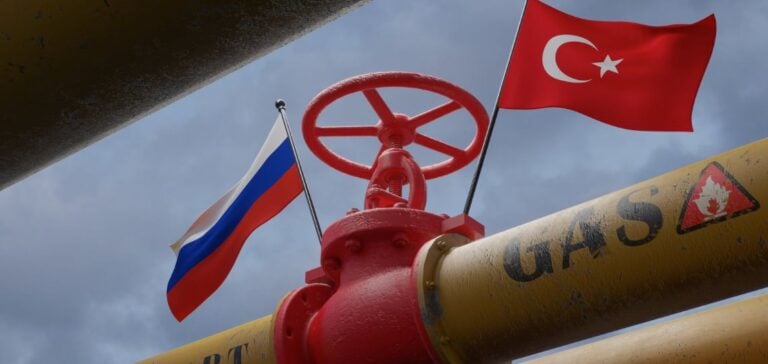Turkey has significantly increased its liquefied natural gas (LNG) imports in response to geopolitical uncertainties and economic sanctions imposed by the United States against Gazprombank. In December 2024, imported volumes reached their highest levels since February, reflecting a proactive approach to securing winter energy supply.
Impact of US Sanctions
On November 21, 2024, the United States expanded its sanctions to include Gazprombank, a key player in processing payments for Russia’s natural gas exports. These measures aim to support Ukraine’s war efforts while complicating energy transactions for Russia. In response, Turkey is actively negotiating with Washington to obtain an exemption that would allow it to continue importing Russian pipeline gas.
Gazprombank plays a crucial role in maintaining gas flows via the TurkStream pipeline, essential for several Central and Southeastern European countries. However, Ankara, anticipating possible disruptions, has diversified its supply by increasing LNG imports.
A Record Increase in Imports
Data from Commodity Insights reveals that Turkey’s LNG imports between December 1 and 17, 2024, reached 1.21 million tonnes, a 33% increase compared to the same period in 2023. The United States accounted for 64% of shipments, followed by Algeria (17%) and Russia (6%). Approximately 82% of these imports were made through spot or short-term purchases, demonstrating the flexibility of supply chains.
Energy Supply Strategies
To meet rising winter demand, Turkey is maintaining gas storage levels while increasing international market purchases. In addition to Russian gas, the country continues to import pipeline gas from Iran and Azerbaijan. However, recent production issues in Iran, marked by power outages, could limit these flows in the coming months.
An industry source indicated that this strategy aims to mitigate supply risks in an uncertain context. “BOTAS, the public supplier, is prioritizing LNG purchases due to sanctions and tensions around Russian flows,” the source stated.
Pressure on LNG Prices
LNG prices in the Eastern Mediterranean remain high due to restricted supply and logistical constraints at the Suez Canal. In December, the DES Eastern Mediterranean marker was assessed at $12.249/MMBtu, reflecting a significant premium over European indices.
Turkey is expecting four more shipments by the end of December, totaling approximately 260,000 tonnes. This trend is likely to continue in January and February 2025, reinforcing Turkey’s role as a regional energy hub.






















